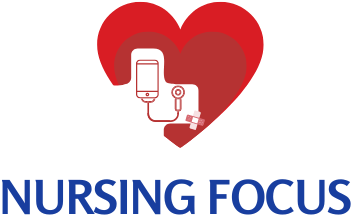To become qualified healthcare practitioners, nursing students must have good communication skills. Effective communication is important for a nurse to provide accurate and effective patient care. The communication skills for a nurse are helpful for the patients as well as their family members.

As a nursing student, try the following techniques to improve your communication abilities:
1. Active Listening:
Giving the speaker your undivided attention can help you to practice active listening. Maintain eye contact, demonstrate involvement through nonverbal indicators like nodding and facial expressions, and refrain from interrupting. This aids in your better understanding of people, their issues, and their medical requirements.
2. Non-Verbal Communication:
Be conscious of your nonverbal cues, such as your body language and facial emotions. utilize proper gestures, maintain an open and welcoming stance, and utilize your nonverbal cues to show empathy and understanding.
3. Empathy & Compassion:
Develop compassion and empathy for patients. Consider yourself in their position, pay attention to their feelings, and answer kindly and sensitively. This facilitates the development of rapport and trust, facilitating more effective communication.

4. Cultural Sensitivity:
Understanding and respecting cultural variations in communication and healthcare practices constitutes cultural sensitivity. To effectively communicate with patients from various cultural origins, get knowledgeable about various cultural customs, values, and norms. Strive to promote inclusive care and close cultural barriers.
5. Emotional Intelligence:
Develop emotional intelligence to be able to detect and control your own emotions as well as those of others. Nurses that have good emotional intelligence know how to handle difficult circumstances, resolve problems, and help patients and their families emotionally.
6. Effective Questioning:
When interviewing patients, use a combination of open-ended and closed-ended questions to get the information you need. Closed-ended inquiries elicit particular information, but open-ended ones enable patients to give more thorough answers. Asking questions is an opportunity to practice active listening.

Keep in mind that developing strong communication skills is a continuous process. Accept opportunities for learning and development, be open to criticism, and work to continually hone your communication skills. In addition to improving patient outcomes, effective communication fosters a favorable healthcare environment for both patients and healthcare personnel.

For more nursing tips and guidance kindly check out our mfocusreview.com website
To download our Nursing Focus app, click the following link:
Android Store:
https://play.google.com/store/apps/details?id=com.nursingfocus
Apple Store:
https://apps.apple.com/app/nursing-focus/id1633014109

